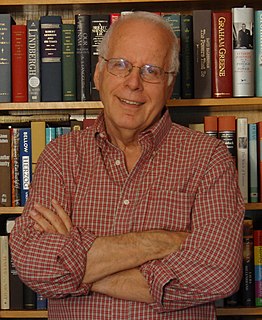A Quote by Victor Hugo
Dear God! how beauty varies in nature and art. In a woman the flesh must be like marble; in a statue the marble must be like flesh.
Related Quotes
... knowledge must continually be renewed by ceaseless effort, if it is not to be lost. It resembles a statue of marble which stands in the desert and is continually threatened with burial by the shifting sand. The hands of service must ever be at work, in order that the marble continue to lastingly shine in the sun. To these serving hands mine shall also belong.
Every piece of marble has a statue in it waiting to be released by a person of sufficient skill to chip away the unnecessary parts. Just as the sculptor is to the marble, so is education to the soul. It releases it. For only educated people are free people. You cannot create a statue by smashing the marble with a hammer, and you cannot by the force of arms release the spirit or the soul of people.
How I saw in her my own true nature. What was beneath my skin. Inside my bones... Even though I was young, I could see the pain of the flesh and the worth of the pain. This is how a daughter honors her mother. It is shou so deep it is in your bones. The pain of the flesh is nothing. The pain you must forget. Because sometimes that is the only way to remember what is in your bones. You must peel off your skin, and that of your mother, and her mother before her. Until there is nothing. No scar, no skin, no flesh.
As a memorial, I'd like a statue. Not of me, but a little modern statue, in marble or bronze, maybe of a bird, in a park where children could play and people going by could see it. On it, I'd just like it to say: 'Maeve Binchy, storyteller' and people could look at the name and remember that they'd seen it somewhere else.
I feel closer ties and more intimate bonds with certain characters in books, with certain images I’ve seen in engravings, than with many supposedly real people with the metaphysical absurdity known as ‘flesh and blood’. In fact, ‘flesh and blood’ describes them very well: they resemble cuts of meat laid out on the butcher’s marble slab, dead creatures bleeding as though still alive.
A statue lies hid in a block of marble, and the art of the statuary only clears away the superfluous matter and removes the rubbish. The figure is in the stone; the sculptor only finds it. What sculpture is to a block of marble, education is to a human soul. The philosopher, the saint, or the hero,--the wise, the good, or the great man,--very often lies hid and concealed in a plebeian, which a proper education might have disinterred, and have brought to light.
Nothing disciplines the inordinate desires of the flesh like service, and nothing transforms the desires of the flesh like serving in hiddenness. The flesh whines against service but screams against hidden service. It strains and pulls for honour and recognition. It will devise subtle, religiously acceptable means to call attention to the service rendered. If we stoutly refuse to give in to this lust of the flesh, we crucify it. Every time we crucify the flesh, we crucify our pride and arrogance.



































